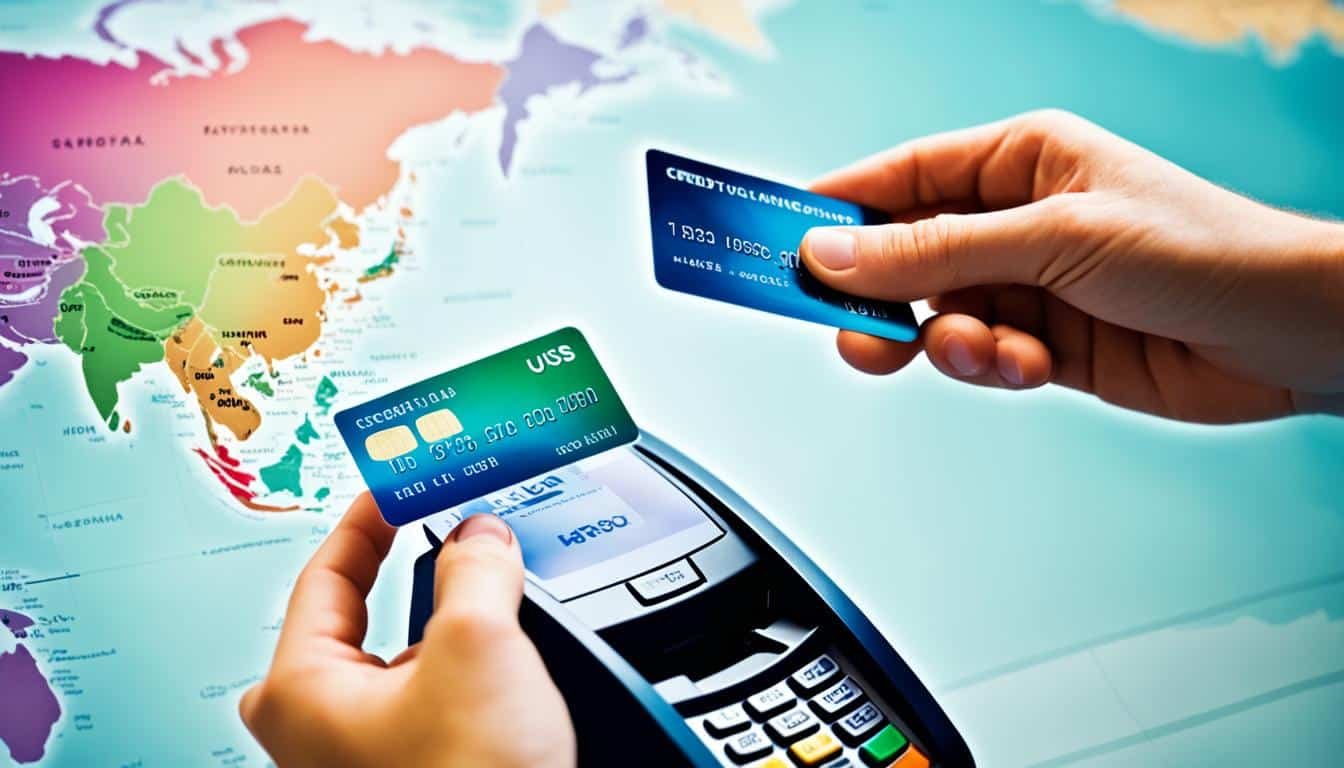Using a credit card while traveling overseas can simplify your spending and provide added security. However, it’s important to be aware of foreign transaction fees and notify your card issuer of your travel plans in advance to avoid any issues. Here are some tips for using your credit card abroad.
Key Takeaways:
- Using a credit card abroad can simplify spending and provide added security.
- Be aware of foreign transaction fees and consider applying for a credit card with no foreign transaction fee.
- Notify your credit card issuer of your travel plans in advance to avoid any issues.
- Avoid dynamic currency conversion and always choose to pay in the local currency.
- Memorize your PIN and carry proper identification when using your credit card abroad.
Use a Credit Card With No Foreign Transaction Fee
When using a credit card overseas, one potential expense to watch out for is the foreign transaction fee. Many credit card issuers charge a fee for purchases made outside your home country, which can quickly add up throughout your trip. To avoid these fees and save money, it’s worth considering applying for a credit card that offers no foreign transaction fees.
A credit card with no foreign transaction fee allows you to make purchases abroad without incurring any additional charges. This can be especially beneficial if you plan on using your credit card frequently while traveling or for larger purchases. By choosing a card without this fee, you’ll be able to enjoy your trip without worrying about unnecessary expenses.
In addition to a credit card with no foreign transaction fee, it’s also wise to have a debit card that doesn’t charge extra for ATM withdrawals in other countries. This way, you can easily access cash while avoiding any fees that may be associated with international ATM use. Whether it’s for smaller expenses or emergencies, having a debit card that offers free ATM withdrawals abroad provides added convenience and flexibility.
When selecting a credit card with no foreign transaction fee and a debit card for international use, it’s essential to consider factors such as customer service, card benefits, and reliability. Comparing different options and reading reviews can help you make an informed decision that suits your specific needs and preferences.
“Using a credit card with no foreign transaction fee can save you money and make your international travels more convenient.”
It’s important to note that although credit cards with no foreign transaction fees and debit cards with free ATM withdrawals can be advantageous, it’s always a good idea to have some local currency on hand for situations where card payments may not be accepted.
Overall, by using a credit card with no foreign transaction fee and having a debit card for international ATM withdrawals, you can enjoy seamless spending and avoid unnecessary fees while traveling abroad.
| Pros | Cons |
|---|---|
| Save money on foreign transaction fees | Some cards may have annual fees |
| Convenience and ease of use | May require a good credit score for approval |
| Added security compared to carrying cash | Availability may be limited |
| Online account management and fraud protection |
Having a credit card with no foreign transaction fee and a debit card with free ATM withdrawals in other countries provides peace of mind and financial flexibility while traveling internationally. It’s a smart choice for savvy travelers who want to make the most of their money without worrying about unnecessary fees.
Notify Your Credit Card Issuer Before Leaving
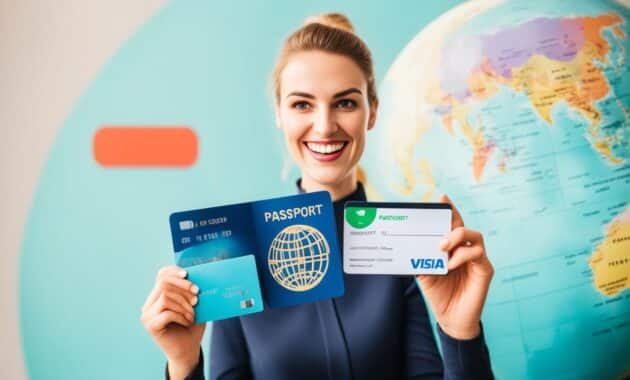
Before embarking on your international adventure, it’s crucial to notify your credit card issuer about your travel plans. Not only does this ensure that your cards won’t be suspended for suspicious activity, but it also provides you with a safety net in case you encounter any issues during your trip. Here’s why it’s important to inform your credit card company before leaving.
- Prevent Suspended Cards: By notifying your credit card issuer about your travel plans, you can avoid the inconvenience of having your cards suspended due to unrecognized foreign transactions. This proactive step helps maintain uninterrupted access to your funds while abroad.
- Emergency Contact: Informing your credit card company of your travel plans gives you a direct line of communication with your issuer, should you encounter any problems. Whether it’s a lost or stolen card, suspicious activity, or a need for assistance, having your card issuer’s contact information readily available can provide peace of mind.
“Notifying your credit card issuer of your travel plans can prevent your charges from being blocked or flagged as suspicious.”
Furthermore, it’s worth noting that some credit card issuers have advanced fraud technology that can detect when cardholders are traveling. By notifying your credit card company, you increase the chances of smooth transactions during your trip.
| Credit Card Issuer | Contact Information |
|---|---|
| Chase | 1-800-432-3117 |
| American Express | 1-800-528-2122 |
| Citibank | 1-800-950-5114 |
| Bank of America | 1-800-732-9194 |
Make sure to keep a record of your card issuer’s contact information, including their international helpline if available. This way, you’ll be prepared for any potential issues and can quickly reach out for assistance.
Remember, notifying your credit card issuer of your travel plans is a simple yet essential step to ensure smooth transactions and avoid unnecessary complications while you explore the world.
Avoid Dynamic Currency Conversion

Dynamic currency conversion is a credit card feature that allows you to make a purchase in a foreign country using the currency of your home country. While this feature may seem convenient, it often comes with an uncompetitive exchange rate, resulting in unnecessary costs for you as a consumer.
To avoid paying more than necessary, it’s recommended to always choose to pay in the local currency when using your credit card abroad. This way, you’ll benefit from the exchange rate provided by your card issuer, which is typically more favorable than the rate offered through dynamic currency conversion.
Furthermore, it’s important to be aware that some merchants may offer to charge you in your home currency instead of the local currency. This may seem convenient at first, but it usually comes with a higher exchange rate and additional fees, leading to an even less competitive rate.
Always remember to refuse any checks or receipts that are expressed in a different currency than the one used in the country you’re visiting. By paying in the local currency, you’ll have a better understanding of the actual cost of your purchases and avoid any surprises when your credit card statement arrives.
| Dynamic Currency Conversion | Local Currency |
|---|---|
| Uncompetitive exchange rate | Competitive exchange rate |
| Additional fees | No additional fees |
| Potential hidden costs | Transparent costs |
Benefits of Paying in Local Currency
- More favorable exchange rate
- No additional fees
- Transparent costs
- Better understanding of the actual cost of purchases
By being aware of this credit card feature and opting to pay in the local currency, you can avoid uncompetitive exchange rates and unnecessary fees, ensuring that you get the most out of your international purchases.
“Paying in the local currency provides you with a better understanding of the actual cost of your purchases and helps you avoid any surprises when your credit card statement arrives.”
Remember, it’s always a good idea to review your credit card’s terms and conditions regarding foreign transactions and fees to make informed decisions when using your card abroad.
Memorize Your PIN
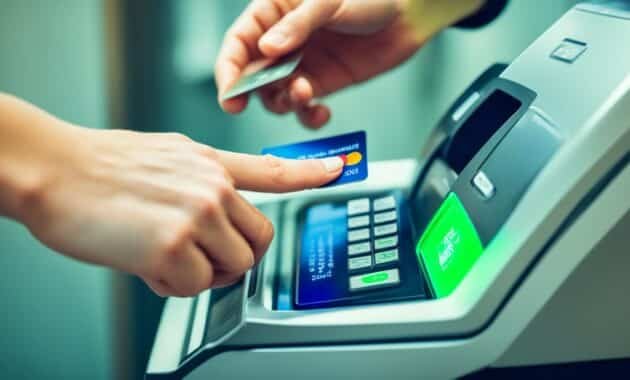
In some countries, credit card terminals require the cardholder to enter a personal identification number (PIN) instead of signing for the purchase. It’s crucial to have a PIN set up and memorized before you travel, as it is the primary method of verifying your identity for transactions.
Chip-and-PIN technology is widely used in many countries, providing an added layer of security for credit card transactions. Instead of relying on the magnetic stripe on the back of the card, chip-and-PIN requires the cardholder to input a PIN, which is securely encrypted within the card’s microchip.
It’s important to note that while chip-and-PIN technology is prevalent, there are still merchants in certain markets who use the less sophisticated magnetic stripe system. Therefore, carrying proper identification, such as your passport, is essential to ensure smooth transactions.
Benefits of Memorizing Your PIN
Memorizing your PIN offers several advantages when using your credit card abroad:
- Convenience: Instead of signing a receipt or providing a signature, entering your PIN is often quicker and more efficient.
- Enhanced Security: Chip-and-PIN technology reduces the risk of fraud, as the PIN serves as an additional layer of verification. This helps protect your credit card information from unauthorized use.
- Broad Acceptance: Chip-and-PIN technology is widely accepted, providing you with access to a vast network of merchants around the world.
Remember, it’s crucial to safeguard your PIN and never share it with anyone. Keep it private and secure to protect your financial information.
While technology has evolved, it’s still important to remain cautious and vigilant when using your credit card abroad. Properly memorizing your PIN and carrying proper identification can help ensure seamless and secure transactions.
| Chip-and-PIN Technology | Magnetic Stripe |
|---|---|
| Uses a secure microchip embedded in the card | Relies on a magnetic stripe on the back of the card |
| Requires the cardholder to enter a PIN for verification | Requires the cardholder to sign a receipt or provide a signature |
| Provides enhanced security and reduces the risk of fraud | May be more susceptible to skimming or cloning |
Do Credit Cards Charge a Fee When Used Overseas?
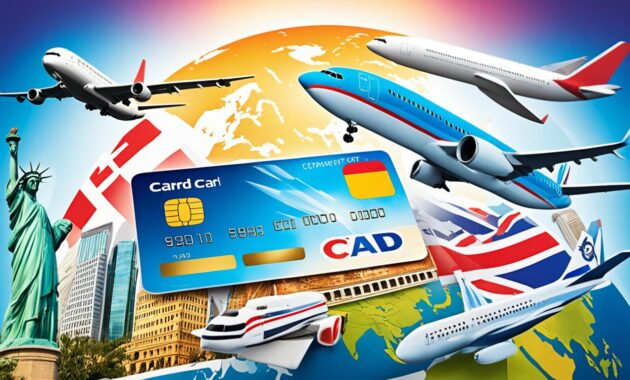
When it comes to using credit cards abroad, one of the biggest concerns for travelers is the potential fees they may incur. It’s important to understand that whether or not credit cards charge fees when used overseas depends on the specific card you have. While some cards do charge a fee, others do not.
“It’s crucial to confirm with your credit card company what fees, if any, will be charged when you use your card overseas.”
Before embarking on your international travel, it’s recommended to reach out to your credit card company and inquire about any potential fees associated with using your card abroad. This will help you plan your finances accordingly and avoid any unexpected surprises.
Additionally, it’s worth noting that not all international merchants accept every type of credit card. To ensure smooth transactions during your travels, it can be helpful to have a credit card from widely recognized payment networks such as Visa, Mastercard, American Express, or Discover.
Accepted Credit Cards by International Merchants:
| Payment Network | Acceptance |
|---|---|
| Visa | Widely accepted |
| Mastercard | Widely accepted |
| American Express | Accepted, but fewer merchants |
| Discover | Accepted, but fewer merchants |
Having a credit card from one of these networks can increase the chances of your card being accepted at various international locations. However, it’s always a good idea to carry multiple payment options, including some local currency, to ensure you’re prepared for any situation.
By understanding the potential fees associated with using credit cards abroad and having the right payment networks in your wallet, you can make informed decisions and enjoy your international travels without unnecessary financial burdens.
Do Credit Cards Automatically Convert Currency?
When you use a credit card in a foreign country, the issuer automatically converts the local currency to the domestic currency using their exchange rate. The amount charged will be reflected in the domestic currency on your card statement.
Using a credit card for international transactions involves currency conversion, which is the process of converting the local currency of the country where the purchase was made into the currency of your home country. This allows you to make purchases abroad without the hassle of exchanging physical cash.
The exchange rate used for the currency conversion is determined by your credit card issuer. It’s important to note that exchange rates fluctuate and can vary between financial institutions. Therefore, the amount you see on your credit card statement may differ slightly from the current exchange rate.
It’s worth noting that some credit cards offer more competitive exchange rates than others. It’s a good idea to research and choose a credit card that provides favorable exchange rates to minimize any additional costs.
Here is an example of how currency conversion works when using a credit card:
| Transaction Details | Amount in Local Currency | Exchange Rate | Amount in Domestic Currency |
|---|---|---|---|
| Purchase in Paris | €100 | 1.10 | $110 |
| Purchase in Tokyo | ¥10,000 | 0.0090 | $90 |
| Purchase in London | £50 | 1.30 | $65 |
As shown in the example table, the credit card issuer converts the local currency into the domestic currency using the exchange rate at the time of the transaction. The converted amount will then appear on your credit card statement in your domestic currency.
Do I Need to Tell My Credit Card Company I Am Going Abroad?
While it is not mandatory, it is highly recommended to notify your credit card company about your travel plans when going abroad. By informing your card issuer in advance, you can prevent potential issues such as blocked transactions or flagged charges due to suspicious activity. Taking this simple step can help ensure a smooth and hassle-free experience while using your credit card internationally.
Using a Credit Card Abroad vs. Using It Domestically
Using a credit card abroad is similar to using one domestically, with a few key differences. When it comes to foreign acceptance, Visa and Mastercard are widely accepted worldwide, making them convenient options for travelers. However, American Express and Discover may have fewer merchants that accept them outside of the United States.
One important factor to consider when using a credit card abroad is the international payment network. Visa and Mastercard have extensive international networks, ensuring smooth transactions in various countries. American Express and Discover also have global networks, but they may not be as widely accepted.
Another consideration when using a credit card overseas is the potential for foreign transaction fees. Many credit card issuers charge these fees when you make a purchase in a foreign currency. These fees can add up, so it’s important to be aware of them and choose a card with no foreign transaction fee if possible.
Comparison of Foreign Acceptance
| Visa | Mastercard | American Express | Discover | |
|---|---|---|---|---|
| Acceptance | Widely accepted | Widely accepted | Accepted, but less widely | Accepted, but less widely |
| International Payment Network | Extensive | Extensive | Global, but less extensive | Global, but less extensive |
| Foreign Transaction Fees | Varies by issuer | Varies by issuer | Varies by issuer | Varies by issuer |
Source: Own research
It’s also worth noting that using a credit card abroad can come with additional perks and benefits, such as travel insurance or rewards programs. These features can add value to your international spending and enhance your travel experience.
“When using a credit card abroad, it’s important to consider the acceptance, international payment networks, and potential transaction fees associated with different card issuers.” – Travel Expert
Overall, using a credit card abroad can provide convenience and flexibility, but it’s essential to be aware of the specific card’s foreign acceptance, international payment network, and any associated fees. By choosing the right card and being mindful of potential costs, you can make the most of your credit card usage while traveling internationally.
Tips for Using a Credit Card Internationally
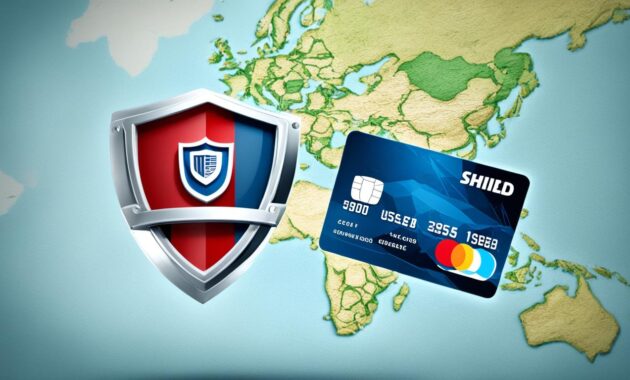
When traveling internationally, using a credit card can be convenient and offer certain protections. To make the most of your experience, consider following these travel tips:
Inform Your Card Issuer
Before embarking on your trip, it’s essential to inform your credit card issuer of your travel plans. This simple step can help prevent your card from being flagged for suspicious activity and ensure that your charges are approved while you’re abroad.
Carry Some Cash
While credit cards are widely accepted in many countries, it’s always a good idea to carry some cash as a backup, especially for smaller merchants or establishments that may not accept cards. Having local currency on hand can also come in handy in situations where card payments may not be feasible.
Choose a Card with No Foreign Transaction Fees
Foreign transaction fees can add up quickly, significantly impacting your travel budget. To avoid these fees, consider using a credit card that offers no foreign transaction fees. By doing so, you can freely use your card without worrying about additional costs.
Consider Multiple Cards for Backup
In case of any unforeseen circumstances such as a lost or stolen card, it’s advisable to have multiple credit cards with you. This way, you’ll have a backup payment option readily available to ensure uninterrupted access to funds during your travels.
Understand Your Credit Card Protections
It’s crucial to familiarize yourself with the travel protections offered by your credit card. From travel insurance to fraud protection, understanding your card’s benefits can provide added peace of mind while exploring new destinations.
By following these travel tips, you can make the most of your credit card usage while overseas. Whether it’s informing your card issuer, carrying cash, using a card with no foreign transaction fees, or having backup cards on hand, these strategies can help ensure a smooth and secure financial experience during your international travels.
The Importance of Cash and Credit Card Compatibility
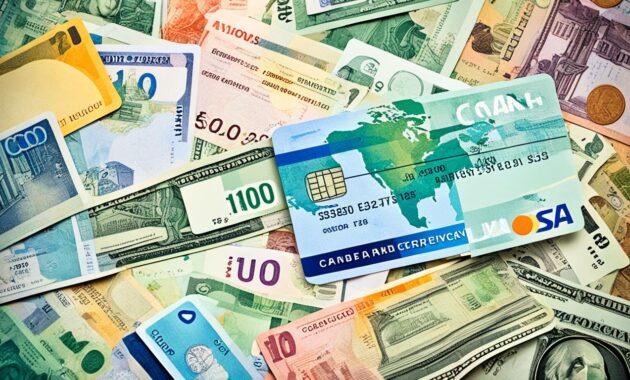
When traveling abroad, it’s crucial to consider the payment options available to you. While credit cards are widely accepted and convenient, it’s still important to carry some cash with you. In certain countries, particularly in Europe, cash is still the preferred payment method in many places. Carrying cash ensures that you have a backup option in case you encounter any issues with your credit card.
Having cash on hand is especially important when visiting smaller establishments, local markets, or rural areas where card acceptance may be limited. By carrying cash, you can easily pay for small purchases, such as snacks, public transportation fares, or tips at local establishments. It’s always advantageous to have the appropriate local currency when conducting transactions, as some vendors may not accept foreign currencies or offer unfavorable exchange rates.
Additionally, having a backup credit card is essential when traveling abroad. Despite credit card compatibility being generally good, there may be instances where your primary card is declined or compromised. By having a backup card, you can avoid any inconveniences and ensure seamless payment experiences throughout your trip. Before traveling, make sure to check with your card issuer about their accepted networks and notify them of your travel plans to prevent any unexpected blocks on your card.
To summarize:
- Carrying cash provides a convenient payment option in areas where card acceptance is limited.
- Having the appropriate local currency ensures you can easily pay for small purchases and avoid unfavorable exchange rates.
- A backup credit card is essential in case your primary card is declined or compromised.
- Notify your card issuer of your travel plans to prevent any unexpected blocks on your card.
By being prepared with both cash and a backup credit card, you can enjoy peace of mind while traveling and have a smooth payment experience regardless of the circumstances.
With the payment options discussed, let’s now delve into the important considerations when using credit cards overseas.
Also Read : Chase Student Credit Card: Smart College Spending
Conclusion
Using a credit card abroad can be a convenient and secure way to manage your expenses while traveling internationally. By taking a few simple steps, you can make the most of your credit card and avoid unnecessary fees.
First, consider applying for a credit card with no foreign transaction fees. These fees can quickly add up and impact your overall spending. Look for credit cards that offer this perk and save yourself some money.
Next, it’s important to notify your credit card issuer of your travel plans before you leave. This ensures that your card won’t be flagged for suspicious activity and provides you with a direct line of communication in case you encounter any issues while abroad.
Finally, be smart about your spending. Avoid dynamic currency conversion and always choose to pay in the local currency to avoid uncompetitive exchange rates. Additionally, consider carrying some cash for merchants that don’t accept credit cards and have a backup card in case of emergencies.
By following these tips for smart credit card usage abroad, you can have a worry-free and enjoyable international travel experience. Choose the right credit cards, plan ahead, and focus on creating unforgettable memories during your trip!
FAQs
Q: Can I use my credit card overseas?
A: Yes, you can use your credit card overseas, but it is essential to check if your card is widely accepted at your destination.
Q: How can I avoid foreign transaction fees?
A: To avoid foreign transaction fees, consider using a credit card that does not charge foreign transaction fees or one that offers travel perks.
Q: What are the travel protections offered by credit cards for international use?
A: Travel protections offered by credit cards for international use may include travel insurance, rental car insurance, and emergency assistance services.
Q: Should I pay in the local currency when using my credit card abroad?
A: It is recommended to pay in the local currency when using your credit card abroad to avoid unnecessary currency conversion fees.
Q: How do I choose the right credit card for international travel?
A: To select the right credit card for international travel, look for cards that do not charge foreign transaction fees, offer travel rewards, and are widely accepted.
Q: Do all credit cards charge foreign transaction fees?
A: No, not all credit cards charge foreign transaction fees. It is essential to check the terms and conditions of your credit card to see if it charges such fees.
Q: What should I do if I encounter an issue with my credit card while traveling abroad?
A: If you encounter an issue with your credit card while traveling abroad, call your credit card company’s customer service number found on the back of your card to report the problem and request assistance.
Source Links
- https://www.investopedia.com/articles/pf/11/using-credit-cards-in-other-countries.asp
- https://www.nerdwallet.com/article/credit-cards/credit-card-tips-international-travel
- https://www.forbes.com/advisor/credit-cards/can-i-use-my-credit-card-internationally/
